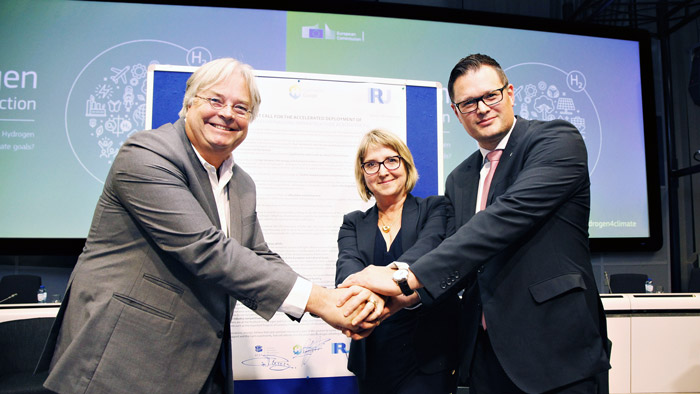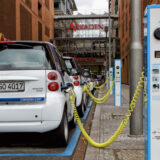
ACEA issues joint call to accelerate EU deployment of hydrogen refuelling stations
The European Automobile Manufacturers’ Association (ACEA), Hydrogen Europe and the International Road Transport Union (IRU) have issued a joint call to accelerate the deployment of hydrogen refuelling stations across the European Union (EU).
The groups contend that while fuel cell electric vehicles can contribute positively to the EU’s overall decarbonisation agenda, as they emit zero emissions at the tailpipe, customers will only adopt zero-emission vehicles if they are affordable and convenient.
“Affordability is the result of combined cost-reduction efforts by automobile manufacturers, energy and fuel suppliers and companies producing hydrogen – supported by incentives from EU member states. Convenience depends largely on the vehicles’ driving range and the availability of refuelling infrastructure,” ACEA said in a statement.
Hydrogen technology acts as a bridge between the energy and transport sectors (sectoral integration), offering solutions for better integration of surplus renewable energies, such as wind and solar (‘power to hydrogen’). Hydrogen can also be stored for extended periods, enabling seasonal storage of energy. The growing demand for renewable and low-carbon hydrogen across many industries will increase its supply and bring down costs.
Europe already has some hydrogen industry champions, and this technology will further boost European competitiveness, thereby creating growth and jobs, the automotive industry trade group pointed out.
“Hydrogen powers diverse mobility solutions. Fuel cell trains, trucks and vans, as well as hydrogen-powered ships and cars are now becoming available on the market. They can be used for both urban and rural mobility and transportation. The advantages of hydrogen include short refuelling time and a long driving range. Also, vehicle weight and load-carrying capacity of trucks are comparable to conventional vehicles.”
If hydrogen is produced in a sustainable manner, it is also possible to significantly reduce well-to-wheel CO2 emissions.
Unfortunately, hydrogen refuelling infrastructure is severely lacking today, putting at risk the development of this innovative zero-emission solution, ACEA lamented.
“A clear signal and commitment to support the deployment of hydrogen refuelling infrastructure is urgently needed from the EU institutions and member-states. In addition, incentive schemes for renewable and low-carbon hydrogen mobility are essential to make it affordable,” ACEA said.
The fight against climate change is a top priority of the new European Commission and Parliament, in line with the adoption of the Paris Agreement.
“In order to help foster the uptake of zero-emission technologies, to leverage European industrial competitiveness and to allow for a smooth transition to carbon-neutral mobility – and society – by 2050, we urge the European Commission, European Parliament and Council to provide the right framework to support the roll-out of hydrogen infrastructure across the European Union,” ACEA said in a statement.
.gif)













